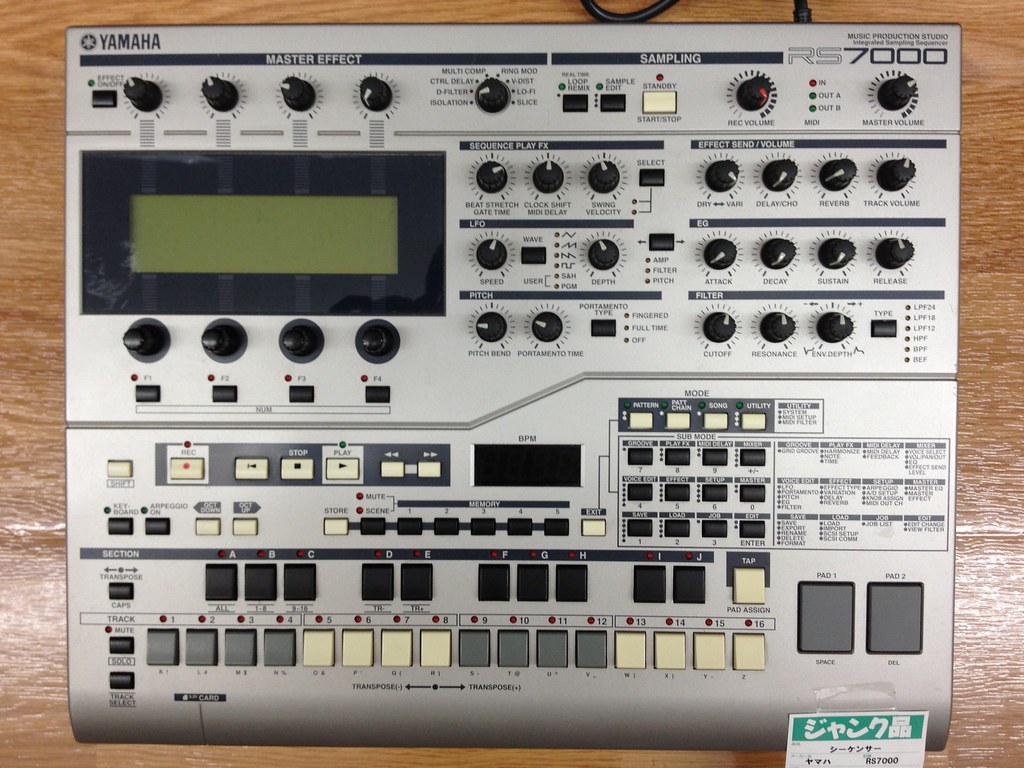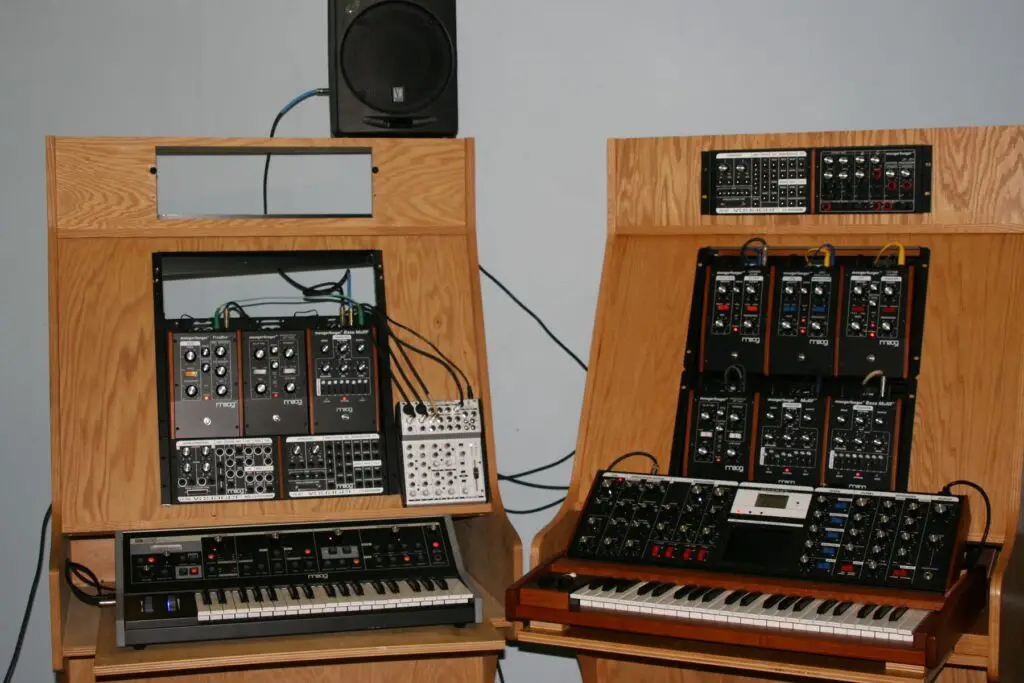Looking to become a top-notch music producer? Then you have to learn how to improve your music production skills. In this article, we’ve compiled ten expert tips that will help you take your music production game to the next level. Whether you’re a seasoned professional or just starting, these tips will give you a foundation to build upon. Let’s dive in and explore how to improve your music production skills.
Table of Contents
Insider’s Perspective
As a seasoned music producer with over a decade of experience, I understand the importance of having a unique style and approach to music production. There are no strict rules or formulas to follow when it comes to producing great music, as it is a deeply personal and creative process that requires experimentation and innovation. Throughout my career, I have discovered and developed my own techniques and methods that have helped me create music that resonates with my audience. I believe that every music producer has the potential to find their own unique style, and in this article, I will share some of my own tips and techniques that have helped me along the way.
Music Theory for Producers
As a music producer, having a solid understanding of music theory can greatly improve your skills. Music theory is the study of how music works, including the elements of melody, harmony, rhythm, and form. Understanding these concepts can help you create more interesting and complex compositions, as well as enhance your ability to communicate with other musicians.
The Importance of Music Theory in Music Production
Music theory provides a foundation for creating musical compositions and arrangements. It helps to understand how different elements of music work together to create a cohesive sound. Here are some benefits of understanding music theory as a music producer:
-
Creating Melodies: Understanding scales and modes can help you create more complex and unique melodies that fit within the context of your song.
-
Harmonizing Chord Progressions: Understanding harmony and chord progressions can help you create emotion and depth in your music. It adds variety and interest to your compositions.
-
Creating Rhythmic Patterns: Understanding time signatures and rhythm can help you create unique and complex rhythmic patterns that enhance the groove of your music. This can make your music sound more interesting and engaging.
Key Music Theory Concepts for Producers
There are several key music theory concepts that are essential for producers to understand. These include:
-
Scales and Modes: A scale is a series of notes arranged in ascending or descending order, while a mode is a variation of a scale with a unique set of intervals. Understanding scales and modes is essential for creating melodies, basslines, and chord progressions.
-
Chords and Harmony: Chords are groups of three or more notes played together, while harmony refers to the way chords are used in relation to each other. Understanding chord progressions and harmonic structures can add depth and emotion to your music.
-
Rhythm and Time Signatures: Rhythm refers to the timing and duration of musical notes and rests. Understanding time signatures, which indicate the number of beats in a measure, is essential for creating grooves and rhythms.
Examples of How Music Theory Can Be Applied in Music Production
Here are a few examples of how music theory can be applied in music production:
-
Creating Melodies: Using scales and modes, you can create interesting and intricate melodies that fit within the context of your song. For example, using the minor scale can add a sad and melancholic feel to your music.
-
Harmonizing Chord Progressions: Understanding harmony and chord progressions can help you create more interesting and emotional chord progressions that add depth to your music. For example, using a chord progression of I-IV-V can create a classic, uplifting sound.
-
Creating Rhythmic Patterns: Using time signatures and rhythm, you can create unique and complex rhythmic patterns that enhance the groove of your music. For example, using a 7/8 time signature can create an unusual and interesting rhythm that sets your music apart from the rest.

Music Production Techniques
If you want to take your music production skills to the next level, there are several techniques you can implement in your workflow. These techniques encompass everything from recording to mixing and mastering, and they can help you create professional-sounding music that engages your listeners. Here are some techniques to consider:
-
Sampling and Sound Design: Sampling involves taking a sound from a recording and using it in a new context. Sound design involves creating new sounds from scratch using synthesis or other techniques. Both techniques can add depth and texture to your music. Consider experimenting with different sample sources and sound design approaches to create unique and interesting sounds.
-
Recording Techniques: Good recording techniques are essential for capturing high-quality audio that sounds professional. Learn about mic placement, room acoustics, and other recording techniques to capture the best possible sound. For example, consider using dynamic microphones for louder instruments, condenser microphones for vocals or acoustic instruments, and experimenting with different room acoustics to capture different tones.
-
Arranging and Composition: Arranging involves structuring your song in a way that creates a compelling narrative, while composition involves creating melodic and harmonic content. Both techniques are essential for creating engaging and memorable music. To improve your arranging and composition skills, try experimenting with different song structures, chord progressions, and melody lines. Consider using software or apps that can help you with music theory, such as hooktheory, chordify, or theorytab.
Examples of How These Techniques Can Be Applied in Music Production
Here are a few examples of how these techniques can be applied in music production:
-
Using Sampling in Hip-Hop: Hip-hop producers often use sampling to create beats, taking sounds from old records and manipulating them in new and interesting ways. For example, consider finding a sample that you like, chopping it up into smaller pieces, and rearranging them to create a new beat.
-
Recording Live Instruments in Rock Music: Rock bands often record live instruments, such as guitars and drums, in order to capture the energy and vibe of a live performance. For example, consider recording your band live in a studio to capture that raw, authentic sound.
-
Using Arrangement to Build Tension in Electronic Music: Electronic music producers often use arrangement to create tension and release, building up to a climactic moment and then dropping back down to a more subdued section. For example, consider gradually adding layers to your track to build up the energy, then taking them away to create a moment of release.

Collaborating with Other Musicians
When starting out as a music producer, it’s common to feel like you need to do everything yourself in order to truly express your vision. However, collaborating with other musicians can be an essential part of improving your music production skills and achieving success. Here are some reasons why you should consider collaborating with others:
-
Unique Perspectives: Collaborating with other musicians can bring fresh and unique perspectives to your music. This can lead to new ideas and approaches that you may not have thought of on your own.
-
Complementary Skills: Working with other musicians who have different skills and strengths than you can help fill in any gaps in your own abilities. For example, collaborating with a vocalist can add a new dimension to your music that you may not have been able to achieve on your own.
-
Networking Opportunities: Collaborating with other musicians can also open up new networking opportunities. You may be introduced to new contacts in the industry or have the chance to perform at new venues.
Don’t be afraid to reach out to other musicians who you admire or who have a style that complements your own. You never know what kind of magic you may create together. Remember to keep an open mind, be willing to compromise, and communicate effectively throughout the collaboration process.

Workflow Optimization
Optimizing your workflow is crucial for improving your music production skills. Workflow optimization is the art of streamlining your creative process, which allows you to work more efficiently and effectively. Here are some tips for optimizing your workflow to improve your music production skills:
Set Up Templates
Templates are a great way to save time and help you get started more quickly. Creating templates in your DAW (Digital Audio Workstation) with your preferred settings and plugins can help you avoid repetitive tasks and stay focused on the creative process.
Organize Your Samples and Sounds
Organizing your samples and sounds into a logical folder structure can help you find what you need more quickly. This can save you time and keep you focused on creating instead of searching through your library.
Learn Keyboard Shortcuts
Learning keyboard shortcuts for your DAW can save you time and allow you to work more efficiently. This can help you avoid distractions and stay focused on the task at hand.
Examples of How Optimized Workflows Can Improve Music Production Skills
Here are some examples of how optimized workflows can improve your music production skills:
-
Faster Idea Generation: Streamlining your creative process can help you generate ideas more quickly and efficiently. This can help you stay productive and motivated throughout the creative process.
-
More Time for Experimentation: By reducing the time it takes to perform repetitive tasks, you can spend more time experimenting and trying out new ideas. This can lead to more innovative and creative productions.
-
Improved Focus: By eliminating distractions and streamlining your workflow, you can improve your focus and concentration. This can help you work more effectively and efficiently, leading to better quality productions.

Creative Inspiration for Music Producers
As a music producer, finding creative inspiration is vital to improving your music production skills. Inspiration can come from various sources, such as other musicians, art, nature, and personal experiences. Here are some tips to help you find and stay inspired:
-
Listen to New Music: Listening to new music can expose you to new ideas and inspire you to try out new techniques. Make it a habit to listen to different genres and artists to widen your musical horizon.
-
Take Breaks: Taking breaks from music production can help you avoid burnout and allow your mind to recharge. Doing other activities, such as exercising, reading, or meditating, can help you relax and gain fresh perspectives.
-
Collaborate with Other Musicians: Collaborating with other musicians can expose you to new ideas and techniques and provide a fresh perspective on your work. It can also help you expand your network and create new opportunities.
Examples of How to Apply Creative Inspiration in Music Production
Here are some examples of how to apply creative inspiration in music production:
-
Using Nature as Inspiration: You could sample sounds from nature, such as birds chirping or waves crashing, and incorporate them into your music. This technique can add a unique and organic element to your tracks.
-
Drawing Inspiration from Art: You could create music inspired by a painting or sculpture, using the colors and shapes as a guide for your sound palette. This technique can help you create a cohesive and visually appealing musical composition.
-
Collaborating with Other Musicians: You could work with a vocalist to create a unique melody or lyric that complements your instrumental track. Collaborating with other musicians can help you create a more diverse and interesting musical composition.

Mixing and Mastering Tips for Producers
Mixing and mastering are essential skills for music producers. Mixing involves balancing the levels of different elements in your song, such as vocals, drums, and instruments, while mastering involves applying final processing to your song to make it sound polished and professional. Here are a few tips for mixing and mastering your music:
1. Using EQ to Balance Frequencies
EQ (Equalization) is a powerful tool for balancing the frequencies in your song. By cutting unwanted frequencies and boosting desirable ones, you can ensure that each element is heard clearly and doesn’t clash with other elements.
2. Using Compression to Control Dynamics
Using compression can help control the dynamic range of your song, making it sound more cohesive and polished. Compression brings out the details in your music, making it sound more professional.
3. Using Reverb and Delay to Create Space
Reverb and delay are essential effects for creating depth and space in your mix. They add a sense of ambience and atmosphere, making your music sound more immersive and engaging.
Examples of How Proper Mixing and Mastering Can Improve Music Production Skills
Here are a few examples of how proper mixing and mastering can improve music production skills:
1. Creating a Balanced Mix
By balancing the levels of different elements in your song, you can create a more cohesive and enjoyable listening experience for your audience. A balanced mix ensures that each element is heard clearly and doesn’t overpower other elements.
2. Making Your Music Sound Professional
By applying final processing to your song, such as EQ, compression, and limiting, you can make it sound polished and professional, helping it stand out from the competition. A professional-sounding track can help you establish yourself as a serious music producer.
3. Enhancing the Emotional Impact of Your Music
By using reverb and delay to create a sense of space and depth, you can enhance the emotional impact of your music and make it more engaging for your audience. A well-mastered track can evoke strong emotions in your listeners, making them more likely to connect with your music.

Music Production Software and Tools
When it comes to music production, having access to the right software and tools is crucial. Whether you’re just starting out or have been producing for a while, choosing the right tools can make all the difference in the quality and efficiency of your work. Here are some key factors to consider when selecting software and tools:
-
Compatibility: Before choosing any software or tools, make sure they are compatible with your computer and operating system. Choosing incompatible software and tools can cause technical issues and hinder your workflow.
-
Features: Consider the features and capabilities of the software and tools you are interested in. Determine which features are most important to you, and choose software and tools that meet your specific needs.
-
Ease of Use: The software and tools you choose should be easy to use and have a user-friendly interface. Working with complex and clunky software can slow down your workflow and decrease your productivity.
Examples of How These Software and Tools Can Help Improve Music Production Skills
Here are some examples of how different software and tools can help improve your music production skills:
-
Digital Audio Workstations (DAWs): DAWs are the backbone of any music production setup. They allow you to record, edit, and arrange your music, as well as add effects and mix your tracks. Some popular DAWs include Ableton Live, Logic Pro X, and FL Studio.
-
Virtual Instruments: Virtual instruments are software-based versions of traditional instruments, such as synthesizers, pianos, and drum machines. They can provide a wide range of sounds and textures that would be difficult or impossible to create with traditional instruments.
-
Effects Plugins: Effects plugins can add depth and texture to your music, as well as enhance the emotional impact of your songs. Some popular effects plugins include reverb, delay, and compression.
-
Visualization Tools: Visualization tools, such as spectrograms and waveforms, can help you analyze and understand the frequency content and dynamics of your songs. This can help you make informed decisions when mixing and mastering your music.
-
Reference Tracks: Reference tracks are songs that you use as a point of reference when mixing and mastering your own music. They can help you achieve a professional sound and ensure that your music translates well across different listening environments.
Limitations of Music Production
Despite the rewarding and fulfilling nature of music production, there are some potential limitations and drawbacks to the process. One of the most common limitations is the cost of equipment and software. High-quality gear and software can be expensive, making it challenging for aspiring producers to get started. However, there are affordable options available, and it’s possible to create great music with a modest setup.
Another limitation is the time and emotional investment required for music production. It can be a time-consuming process that involves trial and error, experimentation, and patience. There may be times when you feel frustrated or creatively blocked, but it’s important to persevere and stay dedicated to your craft.
It’s also worth noting that music production can be a solitary pursuit, which may not be suitable for everyone. Collaboration with other music producers and artists can help to mitigate this, but it’s important to be comfortable working alone for extended periods of time.
Understanding and acknowledging these limitations can help you to prepare for the challenges of music production and develop strategies to overcome them.
Pros and Cons of Improving Your Music Production Skills
Improving your music production skills has its pros and cons. Here are some of the benefits and potential drawbacks to consider:
| Pros | Cons |
|---|---|
| Provides a creative outlet | Expensive equipment and software |
| Offers emotional fulfillment | Time-consuming |
| Allows for collaboration with other artists | Requires a great deal of patience and dedication |
| Offers the potential for financial gain | Can be competitive and difficult to break into the industry |
Creative Outlet
One of the most significant advantages of improving your music production skills is the ability to express yourself creatively. Music production allows you to experiment with different sounds, genres, and styles, giving you an outlet to express your emotions and ideas.
Emotional Fulfillment
Music has the power to evoke emotions and stir the soul. Improving your music production skills can lead to a sense of fulfillment and satisfaction as you create music that resonates with your audience and yourself.
Collaboration with Other Artists
Collaborating with other artists can be a rewarding experience that helps you grow as a musician. Working with other artists can inspire you to try new things and can lead to exciting and unexpected musical outcomes.
Potential for Financial Gain
Improving your music production skills can lead to opportunities for financial gain. You can sell your music, offer your services as a producer, or work in the music industry in different roles.
Expensive Equipment and Software
Music production requires equipment and software that can be expensive. This can be a significant barrier to entry for those who are just starting out or on a tight budget.
Time-Consuming
Music production is a time-consuming process that requires a lot of patience and dedication. It can take many hours, days, or even weeks to create a single track, which can be frustrating for some.
Patience and Dedication
Improving your music production skills requires a great deal of patience and dedication. It takes time to learn the technical aspects of music production and to develop your creative skills.
Competitive and Difficult to Break Into the Industry
The music industry is highly competitive, and breaking into it can be challenging for aspiring producers. It can be challenging to get your music heard, build a fan base, and establish yourself as a professional in the industry.
Collaborating with Other Music Producers
Collaborating with other music producers can greatly improve your music production skills. It can provide you exposure to new techniques and perspectives, as well as valuable feedback on your work. To collaborate effectively, follow these tips:
-
Choose the Right Collaborators: Collaborate with producers who have similar goals and interests, as well as complementary skills and strengths. This will allow you to learn from each other and produce music that is complementary.
-
Communicate Effectively: Communication is key when collaborating with others. Make sure to communicate effectively with your collaborators by setting aside time for regular check-ins, keeping an open mind, and being receptive to feedback and criticism.
-
Set Clear Goals and Expectations: Set clear goals and expectations for your collaboration, including timelines, roles, and responsibilities. This will help you stay on track and avoid misunderstandings.
Examples of How Collaborating Can Improve Music Production Skills
Collaborating with other music producers can lead to the following benefits:
-
Learn New Techniques: Working with other producers can expose you to new techniques and approaches, helping you expand your skillset. For example, you may learn new mixing techniques or sound design approaches by collaborating with a producer who has a different background or skillset.
-
Receive Feedback and Criticism: Collaborating with other producers can provide valuable feedback and criticism on your work, helping you improve and refine your music. Feedback from other producers can help you identify areas where you can improve your music production skills, leading to better end results.
-
Stay Motivated and Inspired: Collaborating with others can help you stay motivated and inspired, as well as provide a sense of community and support. You can bounce ideas off each other, share your creative process, and work together to create music that you’re both proud of.

Building a Music Production Career
Building a successful career in music production requires more than just honing your skills. You also need to promote your music and find opportunities to showcase your work. Here are a few tips to help you build a successful career in music production:
Create a Brand
Creating a brand around your music can help you stand out from the competition and attract new fans. Your brand should reflect your music style and personality. It should include a unique name, logo, and visual identity that helps people recognize your work.
Network
Networking is essential for finding new opportunities and building relationships. Attend industry events, connect with other musicians, and communicate with fans. Join online music communities and forums, and consider reaching out to music bloggers, DJs, and producers.
Promote Your Music
Promoting your music is crucial for reaching a wider audience and gaining recognition. Start by promoting your music on social media and music streaming platforms. Create a website to showcase your work and provide a platform for your fans to connect with you. Consider releasing your music on multiple platforms to reach more listeners.
Examples of How to Build a Career in Music Production
Here are a few examples of how to build a career in music production:
-
Creating a Website and Social Media Presence: A website and social media presence can help you promote your music and build a following. Use your website to showcase your music and provide information about your upcoming events. Use social media to connect with your fans and share updates about your work.
-
Collaborating with Other Musicians and Industry Professionals: Collaborating with other musicians and industry professionals can help you build relationships and find new opportunities. Consider collaborating with other musicians on a project or working with a producer to help you refine your sound.
-
Participating in Music Contests and Festivals: Participating in music contests and festivals can help you gain exposure and recognition for your music. Research music festivals and contests in your area and submit your work for consideration. Participating in these events can help you connect with industry professionals and potential fans.
Conclusion
Congratulations! You’ve made it to the end of our expert tips on improving your music production skills. We hope that you’ve found this article informative and that you’re ready to take your music production skills to the next level. Remember, improving your skills takes time and dedication, but with the right mindset and tools, you can achieve anything you set your mind to.
Don’t forget to check out our other content for more tips, tricks, and tutorials on music production, audio engineering, mixing techniques, sound design, mastering, arrangement, and more. With our help, you’ll be producing music like a pro in no time!
Questions
Who can benefit from improving their music production skills?
Anyone who is interested in creating high-quality music can benefit from improving their music production skills.
What are some basic music theory concepts to learn?
Scales, chords, and rhythm are some basic music theory concepts that can improve your music production skills.
How important is collaboration in music production?
Collaboration can expose you to new techniques and perspectives, and help you grow as a musician.
What are some common mixing and mastering techniques?
EQ, compression, and reverb are common mixing and mastering techniques that can improve the quality of your music.
How can workflow optimization improve music production skills?
Workflow optimization can help you work more efficiently and effectively, leading to better quality productions.
What if I don’t have access to expensive equipment?
There are affordable options available, and it’s possible to create great music with a modest setup.


